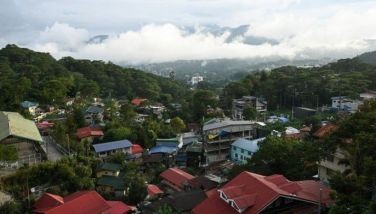P40-M Taiwan garlic seized
BATANGAS , Philippines– Bureau of Customs personnel seized two more 40-foot shipping containers of imported garlic on Thursday, following the confiscation of two shipping containers of garlic last week at the Port of Batangas.
District Collector Ernesto Benitez said the seized items have reached a total of 100 metric tons (100,000 kilos) valued at up to P40 million.
The garlic came from Taiwan. Benitez said the first cargo arrived in Batangas on June 1 and the second on June 12. The first shipment was aboard MV MCC Sandiwa while the second was aboard MV Rubina Schulte. The items were consigned to Good Earth Merchandise based in Cagayan de Oro.
Upon verification, Good Earth Merchandise does not exist in Cagayan de Oro and the shipments were under broker Antonio Enriquez of Guiginto, Bulacan.
“This is clear technical smuggling because the consignee declared the importation as 100,000 kilos of cocoa beans used in making chocolate drinks,†Benitez said.
Since the garlic was misdeclared, the shipment had no phytosanitary clearance as required by the Department of Agriculture (DA) for imported agricultural products.
Benitez said that after the confiscation of the two shipping containers last week, he requested security augmentation from the Philippine Air Force as customs officials gathered intelligence that a group was planning to retrieve the cargo from the port by force.
Benitez said authorities requested an alert order from the office of Deputy Commissioner for Intelligence Jesse Dellosa for a cargo inspection.
Benitez, Rep. Nicanor Briones of the Agricultural Sector Alliance of the Philippines (AGAP) party-list, Batangas second district Rep. Rani Abu and Agriwatch chairman Ernesto Ordoñez witnessed the inspection of the four shipping containers.
The DA and the Department of Trade and Industry have yet to decide whether to destroy the smuggled garlic or have it auctioned to the public to fill the short supply of garlic in the market.
The seizure of the smuggled garlic came as retail prices for the commodity soared to as high as P300-P400 a kilo from P60-P90 per kilo. Based on monitoring of the DA, garlic prices increased by 213 percent in the first quarter of 2014 alone.
But Briones, Abu and Ordoñez insisted on the destruction of the smuggled goods so as not to affect marginalized farmers.
“We don’t have the capability to conduct a phytosanitary test here. While we are familiar with the local pest, how about the pest coming from the other country?†Ordoñez said.
Agri sector disagrees with Malacañang
Meanwhile, the agricultural sector yesterday disagreed with Malacañang over its statement that gains in smuggling resulted in the price surge of basic commodities.
Rosendo So, chairman of the Samahan ng Industriyang Agrikultura (SINAG), an umbrella organization of 33 federations and organizations of various sectors of the agriculture industry in the Philippines, took exception to the statements made by Malacañang citing the findings of the National Price Coordinating Council monitoring the prices of basic commodities.
So also revealed a meeting with Sen. Cynthia Villar, chair of the Senate committee on agriculture and food, where they discussed the problem on smuggling and adopted measures to address the issue.
He said part of the solution is to allow the importation of 800,000 metric tons of rice, which is equivalent to 16 million bags as stop-gap measure while addressing smuggling; plus another 350,000 metric tons equivalent to seven million bags as commitment to the World Trade Organization for the country’s Minimum Access Volume that would be allowed entry through the private sector.
“That means there are 1.15 million metric tons of rice, so there should be no more reason that prices would surge,†So said.
So supported the proposal of Francis Pangilinan, presidential assistant for food security and agricultural modernization, that the National Food Authority (NFA), which handles rice stocks, should release its supply to cushion the impact of the rice price hike.
He said the NFA must continuously release its stocks especially during the lean months from June to September.
In the case of pork supply where price hike was also noted, So urged the government to strengthen its local production to achieve self-sufficiency and not rely on supplies from other countries.
He noted that two years ago, the backyard hog industry died so the country relied on supply from other countries. – With Eva Visperas
- Latest
- Trending






























